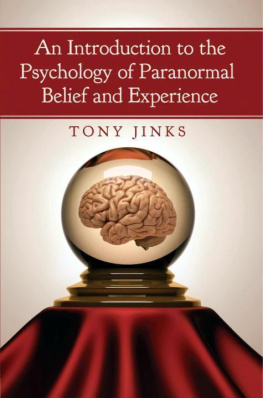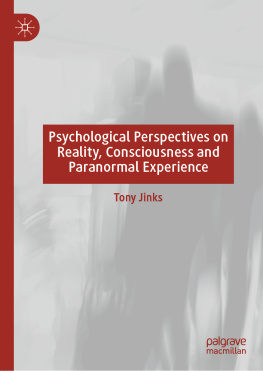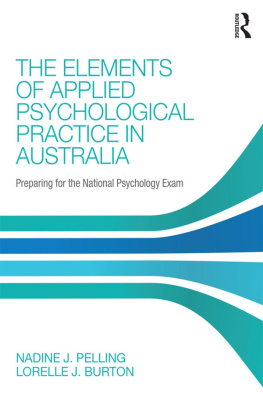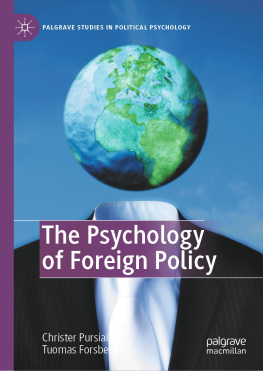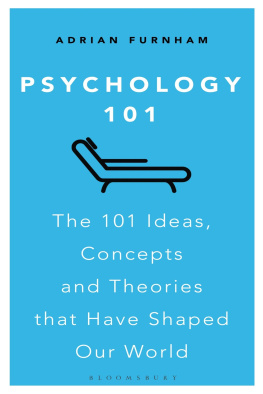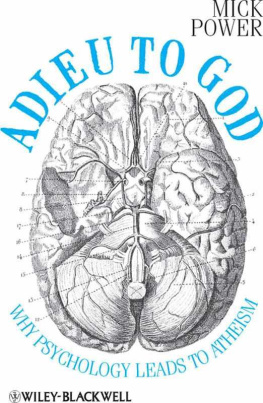TONY JINKS


.................................................. 1
.......................... 3
PART 1: THE PARANORMAL AS EXPLICABLE
....................................... 23
.................. 53
..................... 79
...... 112
...... 139
....................................... 152
......................................... 168
PART 2: THE PARANORMAL AS INEXPLICABLE
....... 181
.................................... 199
............................. 214
................................................. 235
............................................ 245
................................................. 265
At the start of this book, I believe a disclaimer is in order. Although I teach a paranormal subject at a university and have written the occasional scientific paper on paranormal topics, I do not attend conferences or meetings with paranormal experts. Nor do I actively investigate mysterious events as a pastime. I think that makes me somewhat of an outsider - and certainly not a prominent authority on all things paranormal. Nevertheless, being an outsider has its advantages, because it has allowed me to scrutinize the field without pressure or expectation. That is a nice position from which to write a book about the psychology of paranormal belief and experience.
However, one cannot be completely impartial about paranormal events - if I was, then I surely would not have the interest or the motivation to write a book in the first place. Briefly, I will describe my position, so as to put the content of this book into perspective.
When someone admits to seeing a strange object hovering in the sky, the reaction from those who hear the story is largely one of ridicule. The witness saw a spacecraft full of little green men, did he? What has he been smoking? These rejoinders are considered by the listener to be clever, snappy. We all have probably used them at some time or another to express our incredulity. Similarly, other strange experiences - from telepathic hunches to seeing angels or ghosts - are treated as though the witness is drunk, or stupid, or gullible, or overly emotional... The list is almost endless.
I believe these retorts are facile, and display no wit at all. They are also based on psychological theory, whereby a witness's experience stems from a problem in his or her "mind." And to be perfectly honest, it's general practice for educated skeptics to make similar statements, although frequently (but not always) the skeptic uses more sophisticated, scientific language to make the explanation sound impressive.
So, if the arguments used to discount paranormal claims have such a strong psychological basis, it makes sense to want to understand this psychology in greater depth. That is the purpose of this book-to scrutinize the psychological theories that are used to explain paranormal belief and experience. Most commonly, these theories dismiss the paranormality of an encounter, but on occasion they are actually supportive of its anomalous nature. Suffice it to say, the latter theories are not widely appreciated, but this does not make them any less interesting, or important.
My primary objective is to try and comprehend the ideas of the paranormal experts and write about them in a way that I can understand. Then I can relay the knowledge I have gained to others who can benefit from my years of study and deep reservoir of scientific research. The book is therefore directed at a general readership who do not possess a background in psychology, or even science for that matter, in the hope that they can get still a sense of how the field of psychology views the paranormal. I simply do not have the background to write a book on the paranormal for experts in the paranormal but that's not necessarily a problem, because there are lots of articles written by the experts for experts, but not many for everyone else.
A secondary purpose for the book is to create a type of "investigative manual" so that any reader who reads or hears about (or personally experiences) something paranormal can assess the event from a variety of psychological perspectives. Perhaps this will allow him or her to draw a conclusion that is more sophisticated and balanced - and dare I say it, "intelligent" - than laughing a claim off as a product of "craziness" (be it that person's craziness, or someone else's).
So I apologize in advance to the professional researchers if I have left out any of their findings, or missed an interesting topic. It would take a much larger book to cover it all. And to the average reader, I hope I do not lose you with any of the technical stuff.
Finally, while I have tried to make the book as balanced as possible, it is hard to sit on the fence. If anything, I have tended to sway towards acceptance of the paranormal because I have never come across a supporter of the paranormal who has pushed his beliefs on me. On the other hand, I have met plenty of skeptics who assume, because I lecture on a paranormal subject, that what I teach must be critical of strange beliefs and encounters. If I do not teach with a hardcore, skeptical attitude (the horror!) then it suggests there is something wrong.
It is this attitude I find rather distasteful, and I do take it personally. Consequently I have more than a little sympathy for the paranormal enthusiast who generally takes these spiteful attacks with dignity and humor. Then again, the skeptics mount some persuasive arguments, too. So, whatever side you are on, the paranormal is worth studying, and the psychology of the paranormal is a good place to start.
For over a century, many thousands of books, journal articles and opinion pieces have been written about the paranormal, and thankfully they all tend to define the term with reasonable consistency. Sociologist Marcello Truzzi suggests this consistency is one of separating events that are paranormal from events that are supernatural. Paranormal events are extraordinary, but natural, occurrences that are ultimately explainable scientifically. Supernatural events, on the other hand, fall outside the natural order therefore cannot be rationally understood by mere humans (Truzzi 2001).
The arch-skeptic and magician James Randi takes a similar line, explaining that the word paranormal has ancient Greek origins and means beside or beyond what is normal. To Randi, "paranormal" is an adjective that identifies events not yet defined or explained by science, but he believes such events and abilities could be explained if enough information was available to the researcher. In contrast to Truzzi, however, Randi considers the terms "paranormal" and "supernatural" to mean essentially the same thing. Anything and everything mysterious can be understood scientifically when the right amount of information becomes available (Randi 1997).

